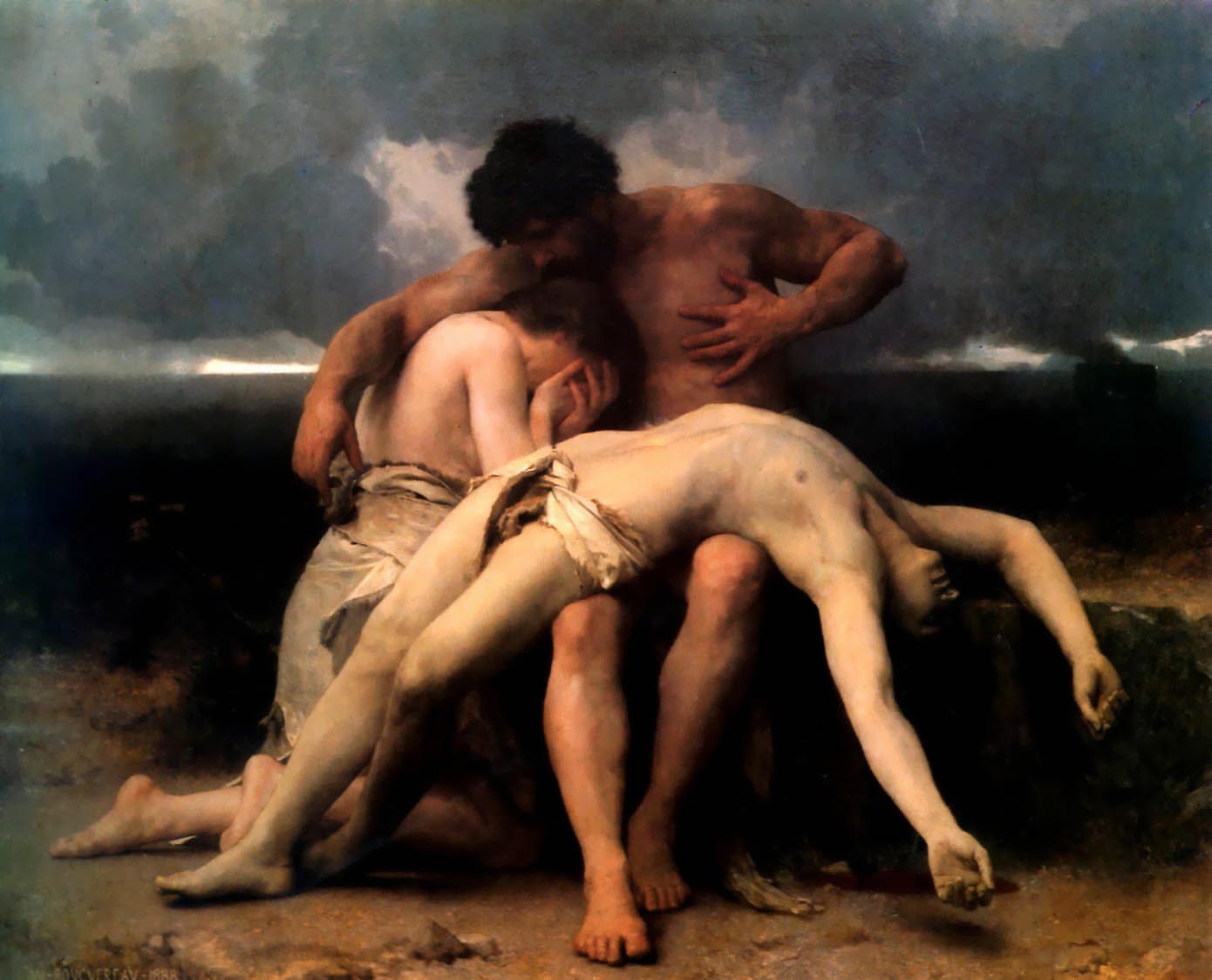13 September 2015
Eve: Bitter Fruit
Genesis 4:1-16
Only now do I taste
the full bitterness
of the fruit that I chose.
Only now do I feel
the full consequence
brought not only on myself
but those I love.
What could I have done?
What did I do wrong?
Why is my son a murderer,
why is my son his victim?
Why must I see repeated
in the lives of my children
the same mistakes I made?
O if only
I had been struck dead
the moment I reached out
and sealed all our fates.
O if only
You had put an end
before this began.
O cruel mercy
to grant us life
and let us watch
as we destroy it.
Only now do I taste
the full bitterness
of the fruit that smelled so sweet.
Only now do I feel
the disappointment you felt,
that cold, cruel pain
as you watched your children
destroy each other and themselves
and fall.
O God, if only
it were me, buried first -
the natural order of things.
How can a mother
bury her child?
How can she banish his brother?
Is this how you felt
as you sent us away,
sent us away to our deaths?
O cruel mercy
to grant us life,
to grant us children
and take them away.
O bitter fruit
that festers and grows
and spreads its roots,
breaking apart
all bonds of love.
Now brother kills brother
as mother weeps,
cast out from paradise
all over again.
__________________________________________________________
[12. - 13. September 2015]
I was looking for another picture when I stumbled over "The First Mourning" by William-Adophe Bouguereau (above), depicting Adam and Eve mourning the death of Abel, who was killed by his brother Cain. I had never before thought of the story of Cain and Abel from the point of view of their parents. Adam and Eve lost both sons in one go: one was killed, the other fled. Like all parents, they probably did not expect their children to die before they did. The death of Abel was the first death. I had not realised that before.
I'm not one to put all the blame on Eve when talking about the "Fall of Man". Kierkegaard made some good points about the fall, namely that it's not just something "historical" that happened way back, but something that happens again in each of us. So my sin is not Eve's fault, but my own, because I fell my own fall.
In this poem I did want to think about what might be going through Eve's head, though. She would probably have felt a lot of guilt ("What did I do wrong, for my son to turn out a killer? Is there not something I could have / should have done that would have prevented it?"), and felt more acutely than before the consequence of the fall, since it affected not just herself and Adam, but her children.
The way I view the fall, it is primarily a break in relationship (more than a rule being broken): Adam and Eve started to distrust God, and as a consequence ended up distrusting each other and blaming each other. The break in relationship with God leads to a break in relationship with other people. And that is what we see in Cain and Abel's case... If Adam and Eve viewed eating the fruit as a sort of "bid for freedom" (free to do what they like / take what they like), that sort of selfish freedom led to Cain feeling he need not be his "brother's keeper". Sin destroys relationships, brings distrust and jealousy. It completely broke up the first family!
True reconciliation is only found in Jesus, who restores human relationships to what they ought to be: accepting each other, loving each other, forgiving each other. I believe ideally the church should be the place where we relate to each other as we should, not destroying each other anymore, or through our selfishness hurting others in our own bid for freedom...
Picture by William-Adolphe Bouguereau
Subscribe to:
Post Comments (Atom)

No comments:
Post a Comment